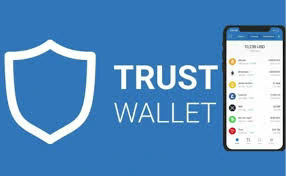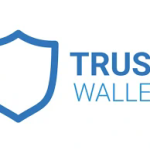Most Secure Crypto Wallets: A Comprehensive Guide to Safeguarding Your Digital Assets
In recent years, cryptocurrencies have gained tremendous popularity, transforming from niche digital instruments to mainstream financial assets. With this rapid rise in usage comes a significant increase in the importance of security, as malicious actors constantly find new ways to exploit vulnerabilities within the ecosystem. Thus, understanding the most secure crypto wallets is essential for anyone involved in the cryptocurrency market. This article provides an in-depth analysis of crypto wallets, the various types available, and insights into how to choose the most secure options for safeguarding digital assets.
### Understanding Crypto Wallets
A cryptocurrency wallet is a digital tool that allows users to store, send, and receive cryptocurrencies. Unlike traditional wallets that hold physical money, crypto wallets do not “store” cryptocurrencies in a conventional sense. Instead, they hold the cryptographic keys necessary to access one’s digital assets on the blockchain. The two main keys involved are:
1. **Public Key**: Similar to a bank account number, a public key is used to receive funds from other users. It is safe to share with anyone who wants to send you cryptocurrency.
2. **Private Key**: This key is akin to a password; it enables the user to authorize transactions and access their funds. It must remain confidential, as anyone with access to your private key can control your cryptocurrencies.
### Types of Crypto Wallets
Crypto wallets can be categorized into several types, each providing different levels of security, accessibility, and user experience.
#### 1. **Hot Wallets**
Hot wallets are connected to the internet and are designed for quick and easy access to your cryptocurrencies. They come in various forms, including:
– **Web Wallets**: Accessible through browsers, these wallets are managed by third-party services. While convenient, they are often vulnerable to hacking.
– **Mobile Wallets**: These are apps installed on smartphones, offering users the convenience of managing their cryptocurrencies on the go. However, they can be susceptible to malware and phishing attacks.
– **Desktop Wallets**: Software installed on a personal computer, desktop wallets provide more security than web wallets. However, they remain vulnerable to malware and raids on the host device.
#### 2. **Cold Wallets**
Cold wallets are offline wallets, providing a much higher level of security than hot wallets. They include:
– **Hardware Wallets**: These are physical devices that store private keys offline. Known for their robust security features, they are immune to online threats but can still be lost or damaged.
– **Paper Wallets**: A physical printout of your public and private keys, paper wallets are highly secure from online threats but can be easily lost or destroyed.
### Security Features of Crypto Wallets
When evaluating the security of a crypto wallet, consider the following features:

#### 1. **Two-Factor Authentication (2FA)**
2FA adds an additional layer of security, requiring users to provide two forms of verification to access their wallets. This greatly reduces the risk of unauthorized access.
#### 2. **Multi-Signature Support**
Multi-signature wallets require multiple parties to authorize a transaction before it can be conducted. This feature enhances security, especially for business use or joint accounts.
#### 3. **Backup and Recovery Options**
Reputable wallets will provide backup options, enabling users to securely copy their recovery phrase or seed phrase. This is critical for recovering access in case of device loss.
#### 4. **Encryption**
Encryption ensures that your private keys are stored securely, making it challenging for unauthorized individuals to access your funds.
#### 5. **Open Source vs. Proprietary**
Open-source wallets allow their code to be inspected and audited by the community, increasing transparency and trust. Proprietary wallets may not offer the same level of scrutiny.
### Factors to Consider When Choosing a Crypto Wallet
Choosing the right crypto wallet involves assessing various factors:
#### 1. **Security vs. Convenience**
Users must weigh the importance of security against convenience. While cold wallets offer superior security, hot wallets are more accessible for regular transactions.
#### 2. **Cryptocurrency Support**
Different wallets support different cryptocurrencies. If you hold multiple types of digital assets, ensure your wallet can accommodate this diversity.
#### 3. **User Experience**
An intuitive user interface can make managing cryptocurrencies easier, especially for beginners. Look for wallets that offer a seamless user experience without compromising security.
#### 4. **Cost**
Consider the wallet’s costs, including transaction fees, maintenance costs, or any upfront expenses for hardware wallets.
### Popular and Secure Crypto Wallets
1. **Hardware Wallets**:
– **Ledger Nano X**: Known for its high security and Bluetooth capability for mobile connectivity.
– **Trezor Model T**: Offers a touchscreen interface with robust security features and supports multiple cryptocurrencies.
2. **Software Wallets**:
– **Exodus Wallet**: A user-friendly desktop and mobile wallet that supports a vast array of cryptos. Offers integrated exchange capabilities.
– **Atomic Wallet**: A decentralized wallet that allows users to manage and exchange numerous cryptocurrencies without relying on a third party.
3. **Web Wallets**:
– **Coinbase**: A widely-used exchange that offers wallet services with enhanced security features, including 2FA.
– **Blockchain.com Wallet**: Provides a simple interface for cryptocurrency management with added security measures.
### Best Practices for Wallet Security
To ensure the safest storage and management of cryptocurrencies, consider the following best practices:
1. **Always Use 2FA**: Enable two-factor authentication for added security on wallets and exchanges.
2. **Keep Your Private Key Safe**: Never share your private key and use secure storage options to keep it confidential. Store digital copies in encrypted files and keep paper copies in secure locations.
3. **Be Wary of Phishing Attacks**: Always verify URLs, particularly for exchanges and wallet providers, to avoid scams.
4. **Regular Backups**: Regularly back up your wallets and recovery phrases. Store these backups in separate, secure locations.
5. **Software Updates**: Always keep your wallet software updated to protect against potential vulnerabilities.
6. **Cold Storage for Long-Term Holding**: For those who intend to hold cryptocurrencies long-term, cold storage options like hardware wallets are advisable.
### The Future of Crypto Wallet Security
As the cryptocurrency landscape evolves, so too will the means of securing digital assets. Groups of developers are continually exploring innovative ways to enhance wallet security, such as:
– **Biometric Authentication**: This could add another layer of security by utilizing fingerprints or facial recognition.
– **Decentralized Identity Systems**: These systems aim to provide users with a secure way to manage their identity and data online, reducing the risks associated with centralized storage.
– **Smart Contracts**: In the future, innovative uses of smart contracts could facilitate safer transactions by introducing automated processes that enhance security protocols.
### Conclusion
Navigating the world of cryptocurrencies necessitates an understanding of wallet security. With numerous options available, individuals should carefully consider the type of wallet they choose based on their security needs, user experience, and transaction frequency. By following best practices and staying informed about the latest developments in wallet technology, users can better protect their digital assets.
The ever-changing landscape of cryptocurrencies highlights the need for ongoing education about security measures and technological advancements. As the market matures, embracing sound security practices will be crucial for anyone looking to participate in the cryptocurrency economy responsibly. Investing in trusted wallets, securing private keys, and staying vigilant against threats are foundational steps toward ensuring the safety of your digital assets.


